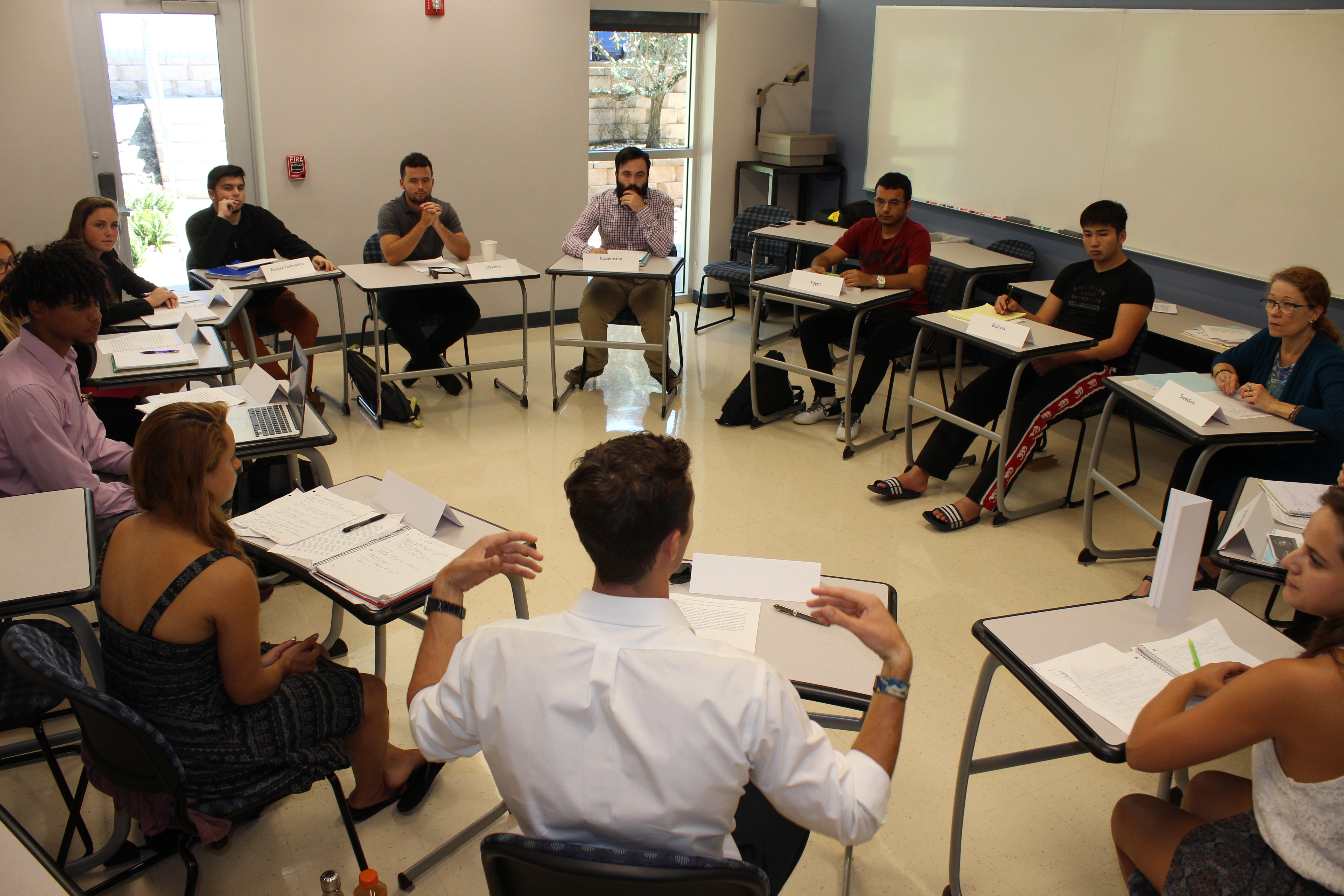Assessing and Understanding the Entrepreneurial Potential of University Students Through the Use of the Entrepreneurial Mindset Profile
Author: David Hayes
Entrepreneurship is a driving force in the global economy and genesis of creativity and innovation. It is responsible for the majority of global job creation (Momani, 2017; Wiens & Jackson, 2015; Wong, Ho, & Autio, 2005), and entrepreneurial ventures are the economic “engine of growth” (Ashraf, 2017).
The global workforce is evolving to reshape our concept of entrepreneurship and the need for entrepreneurial capabilities. Entrepreneurship now embodies the emerging “sharing economy,” with work shifting from full-time positions to freelancing and contract labor in addition to the traditional launching of new ventures (Sundararajan, 2016). Millennials, born between the years of 1981 and 1996 (Dimock, 2018), have embraced this new workforce attitude, with almost half currently freelancing, more than any other generation (Edelman Intelligence, 2017). Thus, the need for entrepreneurial capabilities (i.e., product/service opportunity recognition, branding, marketing) in graduating students is of increasing importance.
“If all students require entrepreneurial capabilities to succeed in future careers, how do we assess their current entrepreneurial potential and then, mentor and grow their abilities?”
A current study using Entrepreneurial Mindset Profile (EMP) data provides answers to these questions. The research, based on 1,554 undergraduate student EMP results from over 23 universities in the US and abroad – arguably the largest and most comprehensive study of its kind – seeks to investigate the phenomena of university-student entrepreneurship personality-characteristics and skill-dimensions as a component of entrepreneurial potential and a driver of intention. Through a comparison of students who identify entrepreneurship as their choice of academic studies to other business and non-business students, the study explores differences in entrepreneurial personality characteristics and skills dimensions to determine:
- If entrepreneurship students are dissimilar to other university students in entrepreneurial personality traits and skills.
- The role gender identity plays in these differences,
- How ethnicity impacts these differences, and
- If country of origin variances exist.
Results show there are well-defined differences in personality characteristics and skill dimensions of entrepreneurship students compared to other majors, particularly most business students. Results also show differences based on gender, ethnicity, and country of origin, and have implications for how to position and market entrepreneurship programs within the university and structure and deliver curriculum content.
Entrepreneurship Students Differ from All Other Students
Entrepreneurship students differ from all other university students in three of the fourteen EMP measurements. ENT students exhibit a higher preference for limited structure and risk acceptance (personality characteristics), and report higher idea generation (skill dimensions).
Entrepreneurship Students Differ from Other Business Students
Except for International Business majors, ENT students have very little in common with other business students. ENT students score higher in the EMP personality characteristics and abilities of independence, non-conformity, risk acceptance, passion, and idea generation. Of note, entrepreneurship students score lower than other business students in action orientation and self-confidence, two characteristics commonly attributed to entrepreneurs.
Entrepreneurship Students Are More Similar to Non-Business Students
The analysis shows ENT students, while different, are more similar to non-business students than business students. Entrepreneurship students, when compared to non-business students, score higher in the EMP personality characteristics and skills of limited structure, risk acceptance, and idea generation.
Entrepreneurship Students Are Most Like Liberal Arts and International Business Students
Entrepreneurship, Liberal Arts, and International Business students are very similar in EMP personality characteristics and skills. There are no statistical differences between ENT students and the two other groups.
Gender Identity Plays a Role in Differences
The EMP data shows the impact of gender identity on entrepreneurial personality traits and skills is significant. Overall, female and male students of all majors score differently on six out of the seven EMP personality characteristics and in three out of seven skills. Females score higher in independence, non-conformity, passion, optimism, and interpersonal sensitivity. By contrast, females score lower in limited structure, risk acceptance, need to achieve, and self-confidence.
Females are most unlike males in their self-confidence, risk avoidance, and need for structure.
These Differences Hold True When Comparing Entrepreneurship Female Students to Entrepreneurship Male Students
Female entrepreneurship students differ from their male counterparts. ENT females like more structure, accept less risk, have a lower need to achieve, and are less confident than their male counterparts. However, they demonstrate higher levels of interpersonal sensitivity (empathy) than male ENT students.
Race is a Factor in Entrepreneurial Characteristics and Skills
Ethnicity plays a role in EMP personality characteristics and skills differences. Overall, students of all majors that identify their race as “White” differ from students that do not. Whites score higher in limited structure, passion, and self-confidence, while they score lower in independence. Further differences are found between students identifying as White, Asian, Black, Hispanic, and American Indian.
Entrepreneurship Students Exhibit Differences Based on Ethnicity
Entrepreneurship students demonstrate differences in EMP personality characteristics and skills. Overall, ENT students that identify their race as “White” score higher in need to achieve, while they score lower in optimism.
Country of Origin Plays a Role in Entrepreneurship Student Differences
Entrepreneurship students demonstrate differences in EMP scores based on their country of origin. Students that list their country of origin as being from outside the US score higher in independence and are more optimistic than their US counterparts.
Entrepreneurship Students are Similar to Entrepreneurs in Personality Characteristics
Entrepreneurship students are like entrepreneurs in EMP personality traits. Entrepreneurship students closely match, with the exceptions of action-orientation and passion, the personality characteristics scores of entrepreneurs.
Entrepreneurship Students Score Lower than Entrepreneurs in Skill Dimensions
Entrepreneurship student EMP skill dimensions scores are lower than those observed for entrepreneurs. The exception to this is interpersonal sensitivity, where students score higher than entrepreneurs.
Implications
First, changes in the global workforce necessitate that all university students develop entrepreneurial capabilities. Because of the importance of entrepreneurship and entrepreneurial competencies to all graduating students, consideration must be given to the offering of entrepreneurship programs within the university. Should universities make classes that teach innovation, creativity, and the entrepreneurial mindset a core requirement for all students?
Second, because personality characteristics and skill dimensions of entrepreneurship students align with liberal arts students, consideration must be given to the positioning of entrepreneurship programs within the university. Should the entrepreneurship program be reimagined outside of its most common location, the business school?
Third, the research results provide insights into the unique personality characteristics of students entering university programs. Consideration must be given to the marketing of university programs. Can universities use this information to more successfully reach potential students? Should market segmentation strategies be developed based on reported personality characteristics and then pushed out to potential students? Would this approach result in higher growth for programs and a better “student/program” fit, leading to improved retention rates?
Finally, EMP results provide universities with an opportunity to assess and potentially modify approaches used to instruct students. Consideration must be given to the development and delivery of entrepreneurial content. Should teaching methodologies be tailored to student personalities? For example, entrepreneurship students demonstrate high levels of idea generation and risk acceptance as well as a dislike for structure. Because of these characteristics, traditional academic learning instruction may not be best suited for these students. Instead, student-learning styles that are more self-directed might better capture student enthusiasm for course content and lead to improved results.
David Hayes is a serial entrepreneur and innovator, turned mentor, turned highly-regarded university instructor, and now, a doctoral candidate. Hayes has an advanced educational background and proven, dynamic startup leadership, and visioning capabilities, resulting in success in both business and academic environments. A Certified EMP Practitioner, Hayes’ current research is in assessing and developing entrepreneurial capacity in university students.
Questions? Comments? Contact David Hayes at [email protected] or to learn more about David, visit https://www.visualcv.com/david-w-hayes


